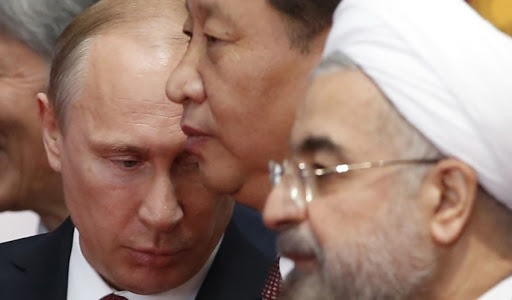Rahman Qahremanpoor told the Strategic Council on Foreign Relations that this is a trend which is seen in many of the world’s regions including the surrounding areas of Iran, adding that even governments that have close relations with the United States are defining a new relationship with China.
“Accordingly, countries are trying to re-define their relations with the Asian countries as alongside China there are other countries such as India, Japan, Australia, Malaysia, Indonesia and South Korea that enjoy a good status in global affairs and are considered important countries.”
He added that China is also an important government and is present in major economic organizations of the world such as the new bloc known as regional economic comprehensive cooperation. In this new bloc, an annual 950 billion dollars of trade and transaction will take place among the countries and the absence of India in this new economic bloc is in the favor of China.
According to Qahremanpoor, some analysts believe that China would attract 60 percent of the dividends of such trade transactions in the new economic bloc. Therefore, he said, countries are seeking to re-define their relations with China and want to be present in the economic and probably political blocs of Asia.
Asked about Iran’s approach towards these developments, he said under such conditions, this issue is of great significance for the Islamic Republic of Iran and should not be delayed as it is strategically important.
“The first step which should be taken by Iran is to create a domestic consensus among decision makers to accept that the issue of China is of strategic nature and one cannot view China like 20 years ago.”
Referring to recent remarks by Xi Jinping in the 100th anniversary of the establishment of the Communist Party in China, Qahremanpoor said his remarks indicated that China has set aside the policy of gradual and peaceful rise and announces in practice that it is the main power in the international system.
This expert believes that alongside the creation of consensus among decision makers, the public opinion is also very important as people should be familiarized with the new realities of the international order.
He explained that some people inside Iran generally believe that China is not a very significant economic power but this is not compatible with the standing realities and the public opinion should be aware of that.
Qahremanpoor said the other issue is that we need to devise a certain and specific strategy and agreeable roadmap concerning the expansion of relations with China and or confrontation with the issue of China.
On the necessity of the membership of Iran in economic organizations or treaties such as the Shanghai Economic Cooperation Organization or Brics, he said it is necessary for Iran to become a member of such organizations.
“However, given the current conditions of Iran, we do not have a big chance to enter such economic blocs.”
Referring to the many problems in this way, he said some of the problems are domestic and other problems are related to those countries that are generally not interested that a country that is economically weaker or is having serious differences with some of the blocs of power in the world can enter such organizations because they believe that a country that has problem with the US may bring its differences with the US into such organizations such as Shanghai or Brics.
Qahremanpoor said “therefore, from one hand, grounds are not prepared inside Iran to join such organizations from the political, economic, technological and transport infrastructure views, and on the other hand, countries are not interested in Iran’s membership due to Iran’s situation in the international system.”










0 Comments